Good morningpublished at 05:48 BST 25 June 2019
Welcome to BBC Africa Live where we'll be keeping you up to date with news and developments on the continent.
Lesotho mohair farmers protest over Chinese monopoly
Ethiopia arrest 250 people over coup bid
Mohamed Salah defends Amr Warda's return to Afcon
New bill in Kenya to tackle gambling epidemic
Health official says war is the root of Ebola
Welcome to BBC Africa Live where we'll be keeping you up to date with news and developments on the continent.
We’ll be back on Tuesday
BBC Africa Live
Clare Spencer, Damian Zane & Esther Namuhisa
That's all from BBC Africa Live for now. Keep up-to-date with what's happening across the continent by listening to the Africa Today podcast or check BBCAfrica.com.
A reminder of our wise words:
Quote MessageWhoever lets himself be led by the heart will never lose his way.
An Egyptian proverb sent by Samuel Gikuru Mwangi in Nairobi, Kenya
And we leave you with this shot taken by the BBC's Christian Parkinson of Nuba wrestlers in Sudan's capital, Khartoum:
Allow Instagram content?
This article contains content provided by Instagram. We ask for your permission before anything is loaded, as they may be using cookies and other technologies. You may want to read Meta’s Instagram cookie policy, external and privacy policy, external before accepting. To view this content choose ‘accept and continue’.
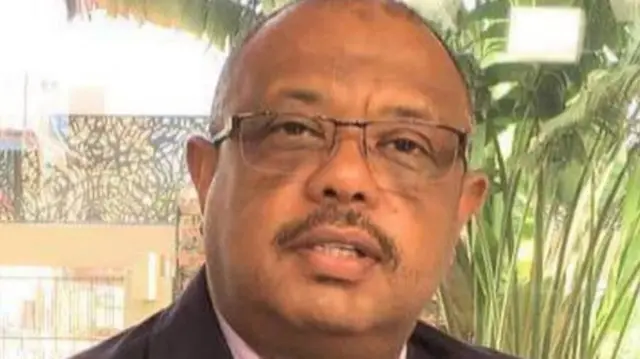 Image source, Abdel-Adheem Hassan
Image source, Abdel-Adheem HassanAbdel-Adheem Hassan says he will return to court on behalf of the rest of Sudan's population
A lawyer in Sudan has told the BBC that the internet has been restored after a three-week shut-down - but only for him.
Sudan's military rulers ordered an internet blackout after they violently dispersed protesters camping in central Khartoum who were demanding they leave power.
The lawyer, Abdel-Adheem Hassan, won a lawsuit over the blackout against telecoms operator Zain Sudan on Sunday.
However, he says he filed the case in a personal capacity so the victory is only benefiting him.
That means he is currently the only civilian in the country able to access the internet without resorting to complicated hacks.
He said he was going back to court on Tuesday to win the right for more Sudanese people.
 Thomas Naadi
Thomas Naadi
BBC Africa, Accra
A popular Ghanaian gospel musician, known as Brother Sammy, has been arrested for allegedly advertising products claiming to cure HIV.
In a series of videos posted on social media, he said his product, known as Spiritual Divine Holy Water, could cure HIV and that he had healed more than 50 people.
The singer, whose real name is Samuel Opoku, also said he produced around 50 bottles a day.
But Ghana's Food and Drugs Authority (FDA) says it has not approved the product for sale.
Many herbalists in Ghana have made similar claims of having a cure for HIV but none has been approved by the authorities.
Brother Sammy is a household name in Ghana’s second largest city, Kumasi, and his songs include the 2017 track Amen:
Allow YouTube content?
This article contains content provided by Google YouTube. We ask for your permission before anything is loaded, as they may be using cookies and other technologies. You may want to read Google’s cookie policy, external and privacy policy, external before accepting. To view this content choose ‘accept and continue’.
He has been granted bail and is expected to appear in court later this week.
 BBC World Service
BBC World Service
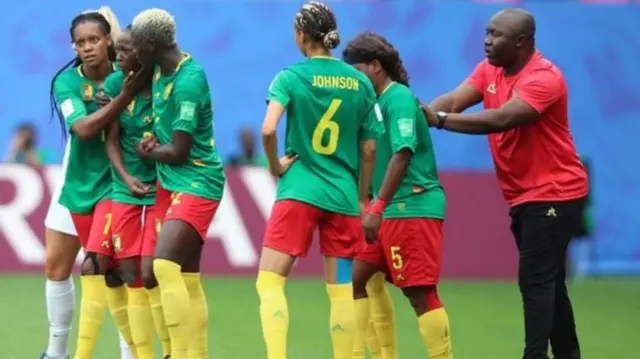 Image source, EPA
Image source, EPACameroon coach Alain Djeumfa (right) encourages his team to continue after Ajara Nchout's goal was ruled out for offside
The head of African women's football says Cameroon will face an inquiry into their conduct during their World Cup match against England on Sunday.
Isha Johansen said the African Football Confederation (Caf) remained proud of the African teams that took part in the Fifa Women's World Cup, but that Cameroon's match reflected badly on the continent.
The players were enraged by two video assistant referee (VAR) rulings that went against them.
Cameroon coach Alain Djeumfa blamed the referee, calling the 3-0 defeat a "miscarriage of justice".
England - one of the favourites to win the cup - will now meet Norway in the quarterfinals.
 Mary Harper
Mary Harper
Africa editor, BBC World Service
The United Nations children's fund says more than 600,000 children in Cameroon have been unable to go to school for the past three years.
English-speaking parts of the country have been affected following an order by Anglophone separatists that schools be shut down.
Unicef says about 80% of schools in English-speaking Cameroon are closed. More than 70 have been destroyed.
Dozens of students and teachers have been kidnapped.
Anglophone militants have been fighting for a separate state, named Ambazonia, for the past few years.
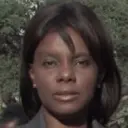 Shingai Nyoka
Shingai Nyoka
BBC Africa, Harare
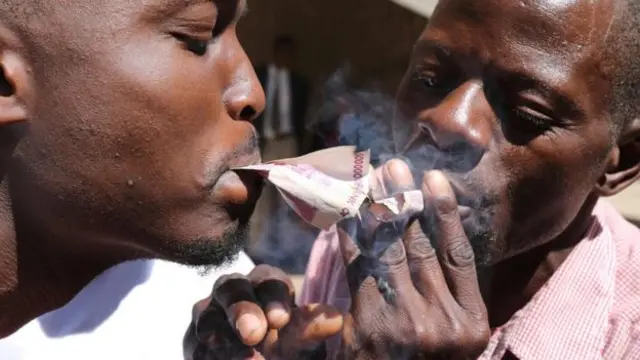 Image source, Getty Images
Image source, Getty ImagesThe Zimbabwe dollar was scrapped after it became almost completely worthless
Zimbabwe has banned the use of international currencies such as the US dollar, South African rand and British pound.
Zimbabwe has not had its own fully fledged currency since 2009, when the authorities abolished the Zimbabwe dollar because of hyperinflation.
The ban comes in immediately and has caught locals by surprise.
Shops and most businesses will only be allowed to accept the substitute currency, RTGS dollars.
The authorities are believed to have introduced this new measure to curb rampant black market currency trading.
Critics believe that this will slow the economy as businesses will not be able to operate with a volatile local currency.
The regulation does not affect foreign currency accounts, and airfares and customs duty for some items will still be paid in foreign currency.
A Kenyan activist has tweeted a video of himself refusing to make way for a motorcade:
Allow X content?
This article contains content provided by X. We ask for your permission before anything is loaded, as they may be using cookies and other technologies. You may want to read X’s cookie policy, external and privacy policy, external before accepting. To view this content choose ‘accept and continue’.
The video shows a car with flashing blue lights facing the activist Boniface Mwangi on the wrong side of the road. There are two cars in the convey behind.
He is heard repeatedly saying: "Why are you driving on the wrong side, I am not going to move.
"Who is this, why are they driving on the wrong side, obey the law!
"Shame on you."
The video goes on to show a man coming out of the front car, clearing the path on the other side of the road and the convoy eventually leaves, but Mr Mwangi does not move.
Mr Mwangi justified himself in his tweet, saying he would only give way to ambulances.
It is not clear who was in the motorcade but it is common in Kenya for the security forces to drive in front of politicians during traffic jams and order other drivers to clear the way.
Mr Mwangi has been praised on social media for refusing to give way, with many commenting that they would like to do the same thing but do not have the courage to do so.
Allow X content?
This article contains content provided by X. We ask for your permission before anything is loaded, as they may be using cookies and other technologies. You may want to read X’s cookie policy, external and privacy policy, external before accepting. To view this content choose ‘accept and continue’.
Allow X content?
This article contains content provided by X. We ask for your permission before anything is loaded, as they may be using cookies and other technologies. You may want to read X’s cookie policy, external and privacy policy, external before accepting. To view this content choose ‘accept and continue’.
But some complained that they felt that Mr Mwangi was only left alone by the security guard because he had a luxury car.
The BBC's Emmanuel Igunza reports that the man who is said to have planned Saturday's alleged coup attempt in northern Ethiopia - General Asamnew Tsige - has been shot dead by police.
Brig Gen Asaminew was among a group of high-ranking military officers released from prison early last year when the government moved to free political detainees in response to public pressure.
The general had been in custody for nine years for allegedly plotting a coup.
He is reported to have been killed near where the attack took place in Amhara State in northern Ethiopia.
 Milton Nkosi
Milton Nkosi
BBC Africa, Johannesburg
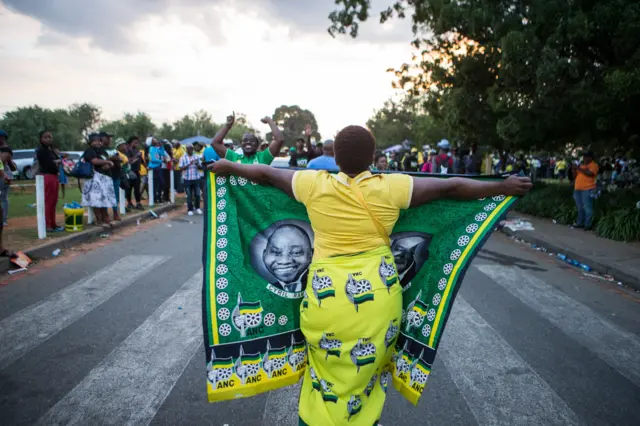 Image source, Getty Images
Image source, Getty ImagesThere are questions over some money that came into Mr Ramaphosa's leadership election campaign in 2017
South African President Cyril Ramaphosa is under investigation for money laundering by the country's corruption watchdog.
After reports of this came out over the weekend, external, the watchdog, called the Public Protector, issued a statement on Monday clarifying the nature of the investigation.
It said that the investigation stems from a complaint on 23 November 2017 from the opposition leader, Mmusi Maimane.
He has alleged that a payment of 500,000 rand ($35,000; £27,000) towards Mr Ramaphosa's 2017 campaign to become ANC leader.
Specifically Mr Maimane says that it was not a straight forward donation but instead passed through several intermediaries, which raises the suspicion of money laundering.
Mr Ramaphosa's election campaign team issued a statement denying the allegation and added that they have been assisting the Public Protector with the investigation.
Tanzanians are debating a new bill that is going through parliament that critics say could stifle freedom of expression.
What is called the "special bill supplement" has amendments to laws concerning foreign companies and charities filming in the country, among other issues.
The bill, if passed, would require foreign film makers to submit their raw footage to the Tanzania Film Board. They would also have to "sign a prescribed clearance form before exiting Tanzania" in the words of the bill.
If someone is found to have broken the law they could be fined at least 5% of the production costs.
There are concerns that this could restrict what people can film in the country.
On Twitter, using the hashtag #Uhuruwetu - meaning "our freedom" in Swahili - Tanzanians have been criticising the bill.
One political activist, Maria Sarungi Tsehai, shared concerns that the possible restrictions on filming could have an impact across society.
"This is not my freedom or yours but its our freedom as a country," she wrote in Swahili. "if the new law amendment is passed, the effects will be on our schools, hospital, religious institutions, civil society and government activities. Member of parliament should be brave."
Allow X content?
This article contains content provided by X. We ask for your permission before anything is loaded, as they may be using cookies and other technologies. You may want to read X’s cookie policy, external and privacy policy, external before accepting. To view this content choose ‘accept and continue’.
There will be further discussions on the bill in parliament on Thursday. It is not clear when it could become law.
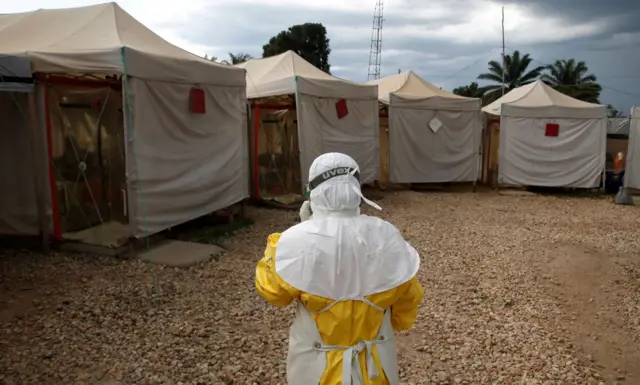 Image source, Getty Images
Image source, Getty ImagesHealth workers cover up so they don't spread Ebola
As of Sunday, 1,506 people had died in the outbreak of Ebola in the Democratic Republic of Congo, AFP news agency quotes the health ministry as saying.
There have been 2,239 recorded cases, it said.
This is the second biggest ever outbreak, after the epidemic that started in 2014 in West Africa and killed 11,300 people.
But the World Health Organization (WHO) said this month that the outbreak currently did not yet represent a global threat.
Ebola infects humans through close contact with infected animals, including chimpanzees, fruit bats and forest antelope.
It can then spread rapidly, through contact with even small amounts of bodily fluid of those infected - or indirectly through contact with contaminated environments.
Read more: Ebola outbreak in five graphics
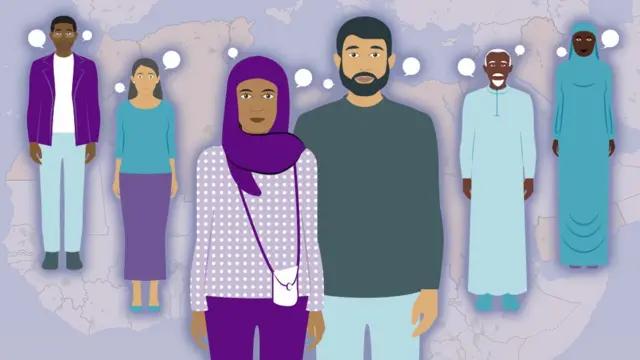
People in the Arab world are increasingly saying they are no longer religious, according to the largest and most in-depth survey undertaken of the Middle East and North Africa.
The BBC survey suggests 18% of young people across the region hold secular views, up 7% from nine years ago.
The rise is greatest in the under 30s, among whom 18% identify as not religious, according to the research. Only Yemen saw a fall in the category.
This is reflected in falling trust in the main Islamist movements - including the Muslim Brotherhood.
Tunisia, Libya and Algeria came out as having the highest proportion of people who were not religious:
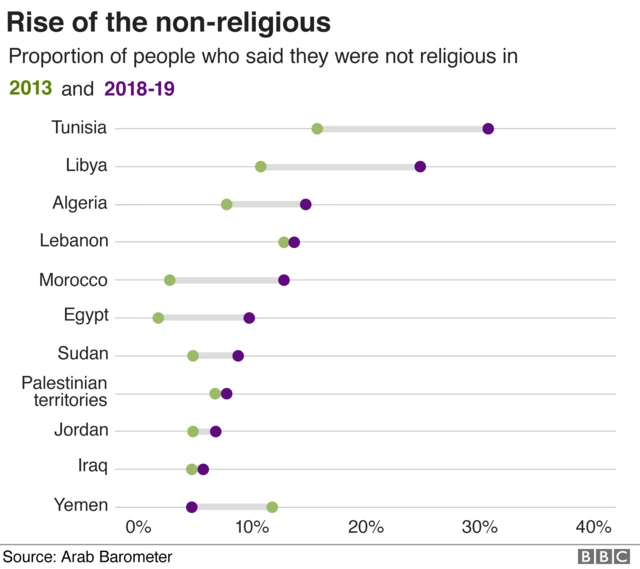
The attorney general for Ethiopia's northern Amhara state, Migbaru Kebede, has died from his injuries following Saturday's gun attack in the regional capital, Bahir Dar, state-run media reports.
The federal government described the attack as a coup attempt as people tried to overthrow the state government.
It had been reported that Mr Migbaru had been injured while the governor of Amhara, Ambachew Mekonnen, and his senior adviser, Ezez Wasie, were killed when gunmen entered an office where the men were meeting.
Hours later the chief of staff of the army, Gen Seare Mekonnen, was shot dead by his own bodyguard in the capital, Addis Ababa.
He and another officer, Gen Gezai Abera, died trying to prevent the coup attempt, Prime Minister Abiy Ahmed said.
Ethiopians are observing a day of mourning.
 Image source, Getty Images
Image source, Getty ImagesThe late Eritrean-American rapper Nipsey Hussle was given the award for best male hip-hop artist at the Black Entertainment Television (BET) awards at the weekend.
He was shot dead aged 33 in March.
John Legend and DJ Khaled performed a musical tribute to Nipsey during the ceremony, which celebrates black culture in the US.
Among the other award winners was the Nigerian star Burna Boy, who won the award for the best international act.
A Kenyan cabinet minister has denied plotting to kill Deputy President William Ruto, local media reports.
Trade Minister Peter Munya was speaking outside the headquarters of the Directorate of Criminal Investigations where he had been summoned, along with two other cabinet ministers, to talk about allegations that they were threatening Mr Ruto, the Standard newspaper reports, external.
They had been accused of holding secret meetings, the Standard adds, but Mr Munya told journalists that they did not give statements to the police as Mr Ruto had not made a complaint.
The minister admitted that there had been meetings but "they were never meetings planned to assassinate the deputy president", Mr Munya said.
The Daily Nation quotes, external the minister as saying that Mr Ruto had alleged that they had been holding the secret meetings with other officials.
Deputy President Ruto is planning to run for president in 2022.
There are all sorts of reasons why football teams lose matches that are mostly to do with a failure of the coach or the players, but sometimes fans are keen to blame bad omens.
Some Kenyans, reflecting on their nation's 2-0 defeat to Algeria in their opening Afcon match, think former Prime Minister Raila Odinga is a bad omen. He was in Egypt to watch the match.
Before the game, one Twitter user flagged up the potential problem:
Allow X content?
This article contains content provided by X. We ask for your permission before anything is loaded, as they may be using cookies and other technologies. You may want to read X’s cookie policy, external and privacy policy, external before accepting. To view this content choose ‘accept and continue’.
After Sunday's game people were asking for the president to act. This tweeter said, in both English and Swahili, that he had to do something immediately:
Allow X content?
This article contains content provided by X. We ask for your permission before anything is loaded, as they may be using cookies and other technologies. You may want to read X’s cookie policy, external and privacy policy, external before accepting. To view this content choose ‘accept and continue’.
But others have pointed out that Kenyans should focus on the players' performances first:
Allow X content?
This article contains content provided by X. We ask for your permission before anything is loaded, as they may be using cookies and other technologies. You may want to read X’s cookie policy, external and privacy policy, external before accepting. To view this content choose ‘accept and continue’.
Mr Odinga himself did not address the question of his impact. In a post-match tweet he told the team to "keep your heads up and keep going" and went on to say in Swahili "sliding is not falling":
Allow X content?
This article contains content provided by X. We ask for your permission before anything is loaded, as they may be using cookies and other technologies. You may want to read X’s cookie policy, external and privacy policy, external before accepting. To view this content choose ‘accept and continue’.
Kalkidan Yibeltal
BBC Amharic, Addis Ababa
In the wake of Saturday's killings of four top officials flags are flying at half mast in Ethiopia as the country observes a day of mourning.
TV stations are running statements of condolence and solidarity from a number of federal and regional officials.
Religious leaders have called for calm.
Meanwhile, residents of the capital, Addis Ababa, can be seen going about their regular activities, but the internet shutdown continues.
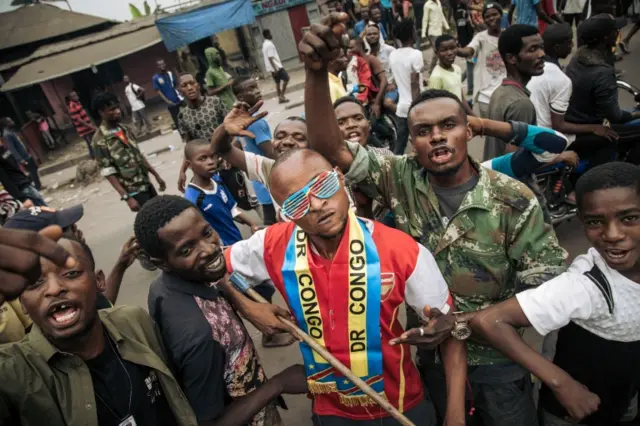 Image source, AFP
Image source, AFPSupporters of Jean-Pierre Bemba came out to greet him on Sunday
The former Vice-President of the Democratic Republic Congo, Jean-Pierre Bemba, is back in his country for the first time since December's disputed elections.
He was barred from running in the election and backed Martin Fayulu, who said that he had won the poll rather than Felix Tshisekedi.
His last visit, in August 2018, was his first after 11 years in exile and prison.
The ex-rebel leader had had a war crimes conviction by the International Criminal Court overturned two months earlier.
But the ICC's conviction for bribing witnesses still stands, but he is challenging that.
While in the country this time, Mr Bemba is planning to visit all areas of the country to talk about what he calls the truth about the election, BBC Swahili's Mbelechi Msochi reports from the capital, Kinshasa.
It is not clear how long he intends to be in DR Congo.
Five endangered black rhinos have arrived in Rwanda after being flown from the Czech Republic, Rwanda's Akagera National Park is reporting on its Twitter account.
Allow X content?
This article contains content provided by X. We ask for your permission before anything is loaded, as they may be using cookies and other technologies. You may want to read X’s cookie policy, external and privacy policy, external before accepting. To view this content choose ‘accept and continue’.
The rhinos, three females and two males, were raised in captivity, as part of a project to supplement wild rhino populations with those born in zoos, the charity African Parks, external says.
African Parks helps manage Akagera alongside the Rwandan authorities.
It says that there are now fewer than 5,000 black rhinos left in the wild and adds that the translocation project shows how zoos and conservation groups can work together.